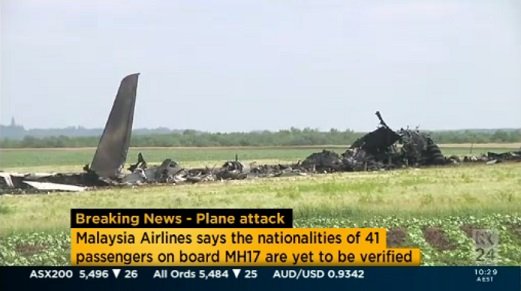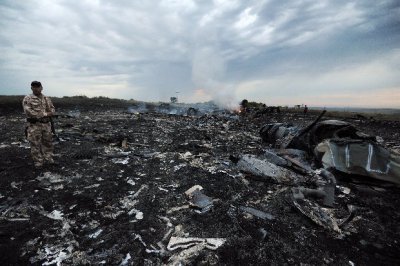MH17: the trauma of reporting trauma

The past few days on the news front have been pretty tough for broadcasters. The rolling coverage of human trauma can take a heavy toll on those processing and delivering the news.
We filter the details, deciding what’s ‘palatable’ or what’s just too gruesome to go any further. We’re expected to be professional and calm, delivering comprehensive reports every half hour, when perhaps all we want to do is stop for a moment. And maybe cry.
 The enormity of the MH 17 tragedy has taken things to another level. Given the number of Australian victims, it’s inevitable that we’ll be speaking to someone who knows someone who knew a victim.
The enormity of the MH 17 tragedy has taken things to another level. Given the number of Australian victims, it’s inevitable that we’ll be speaking to someone who knows someone who knew a victim.
They could be our neighbour. They could have kids the same age. That connection, real or perceived, can make it so very hard not to become too emotionally involved.
The ‘broadcast blinkers’ make it a little easier to detach yourself from the human tragedy, or perhaps help put reality on hold for a while. But what happens when the microphone is switched off and you head home?
Every journalist can expect to cover a ‘crisis’ of some sort during their career: a shooting, a terror attack, a bushfire or some other natural disaster.
It means there’s a very real chance that we may suffer Post Traumatic Stress. It’s well documented in journalists and is quite similar to that experienced by emergency workers.
You can expect flashbacks, emotional numbness, an avoidance of places and people that might serve as a reminder of events. Then there’s the irritability, the jitters and nightmares.
Some of the big media outlets and networks offer staff counselling to deal with a range of personal issues and journalists should take advantage of those services.
After the Boxing Day tsunami and the Black Saturday bushfires, I made sure my team at DMG Melbourne had access to counselling services if they needed to talk to someone outside the newsroom.
Trust me, there’s no need for the stiff upper lip or a misguided belief that you’re somehow immune from the trauma. Journalists ARE human and its not a weakness to seek help.

 For those working in smaller newsrooms or in smaller markets, there are organisations like beyondblue or Life Line who can help. Or your local GP.
For those working in smaller newsrooms or in smaller markets, there are organisations like beyondblue or Life Line who can help. Or your local GP.
 When do we stop the coverage? When does story fatigue kick in? It’s probably too soon to make the call. This story will play out for a while longer.
When do we stop the coverage? When does story fatigue kick in? It’s probably too soon to make the call. This story will play out for a while longer.
In the meantime, look out for each other and remember you are human and it is OK to ask for help.



